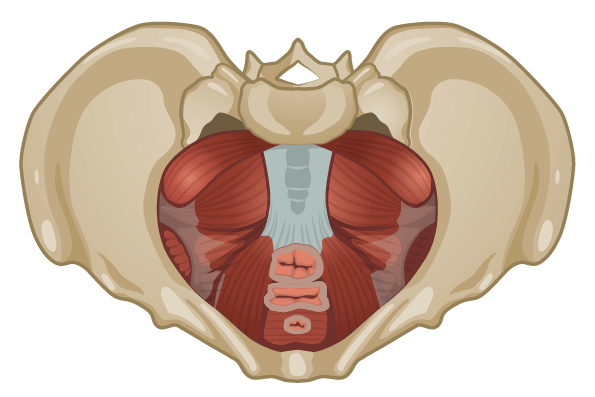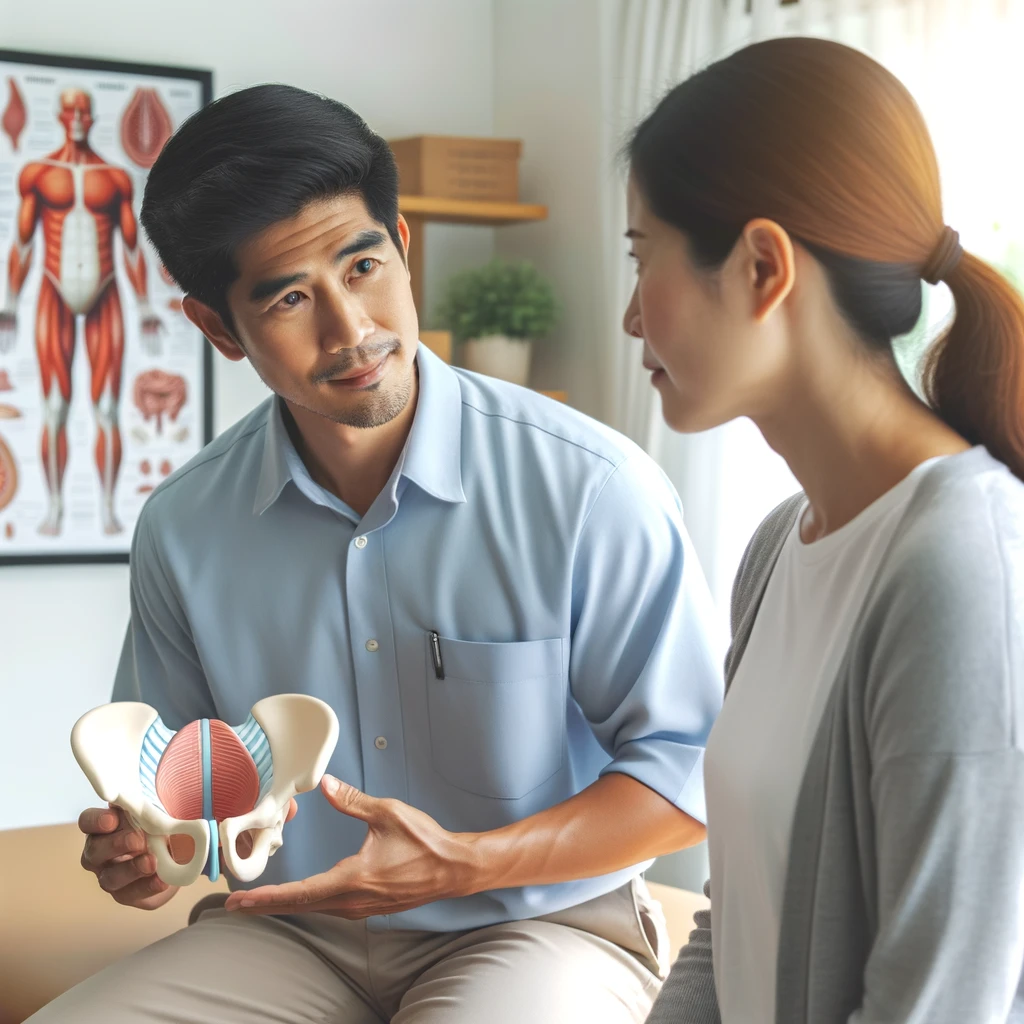Back
The Link Between Your Desk Job and Pelvic Floor Dysfunction
By Dr. Christine Martirez PT, DPT on 1/25/2024

In an era dominated by desk jobs and sedentary lifestyles, the impact on our health extends beyond just back pain and eye strain. Let's explore how prolonged sitting and sedentary habits contribute to pelvic floor issues and shed light on how pelvic floor therapy can be a transformative solution for those seeking relief.

The Sedentary Lifestyle Epidemic
The modern workplace, characterized by prolonged hours of desk sitting and limited physical activity, has given rise to a sedentary lifestyle epidemic. While the convenience of technology has improved productivity, it has also ushered in a host of health challenges, including the prevalence of pelvic floor dysfunction.
How Desk Sitting Contributes to Pelvic Floor Dysfunction:
Pressure on the Pelvic Floor:
Prolonged sitting places direct pressure on the pelvic floor muscles. Over time, this constant pressure can lead to muscle tension, weakening, and dysfunction.Poor Posture:
Maintaining an improper sitting posture, such as slouching or crossing legs, can contribute to misalignment of the pelvis and strain on the pelvic floor muscles.Reduced Blood Circulation:
Sitting for extended periods can impede blood circulation to the pelvic region. Inadequate blood flow hinders the delivery of essential nutrients and oxygen to the pelvic floor muscles, affecting their health and function.Impact on Bowel and Bladder Function:
Sedentary habits may contribute to issues like constipation and urinary incontinence, both of which can place additional stress on the pelvic floor.

The Role of Pelvic Floor Dysfunction
Pelvic floor dysfunction encompasses a range of conditions, including pelvic pain, incontinence, and sexual dysfunction. The weakened or tense pelvic floor muscles, often a result of prolonged sitting, can manifest in various symptoms that impact both physical and emotional well-being.
How Pelvic Floor Therapy Can Help
Muscle Assessment and Strengthening:
Pelvic floor therapists conduct thorough assessments to identify muscle imbalances. Tailored exercises are then prescribed to strengthen weak muscles and relax overactive ones.Posture Correction:
Therapists work with individuals to correct poor sitting posture and provide guidance on ergonomic adjustments in the workplace to alleviate pelvic floor strain.Biofeedback Techniques :
Biofeedback is utilized to provide real-time information about pelvic floor muscle activity. This empowers individuals to gain awareness and control over their pelvic floor muscles, promoting optimal function.Manual Therapy:
Hands-on techniques are employed to release muscle tension and address trigger points in the pelvic floor. This can contribute to pain relief and improved muscle function.Education on Lifestyle Modifications:
Therapists educate individuals on the importance of regular movement, breaks from prolonged sitting, and exercises that promote pelvic floor health.

Empowering Change
Pelvic floor therapy goes beyond symptom management; it empowers individuals to make lasting lifestyle changes. By addressing the root causes of pelvic floor dysfunction and providing tools for prevention, therapy becomes a roadmap to renewed pelvic health.
In the digital age where desk jobs and sedentary habits prevail, prioritizing pelvic floor health is paramount. Pelvic floor therapy stands as a beacon of hope for those navigating the challenges of dysfunction. By recognizing the impact of prolonged sitting, embracing proactive measures, and seeking the expertise of pelvic floor therapists, individuals can break free from the chains of pelvic floor dysfunction and embark on a journey towards improved well-being and vitality.
Reach Out to Us
If you are experiencing pelvic floor dysfunctions associated with the issues above, please reach out to us at Pelvic Health Center in Madison, NJ to set up an evaluation and treatment! Feel free to call us at 908-443-9880 or email us at receptionmadison@pelvichealthnj.com.
Read More:
How Chronic Pelvic Congestion in Men Contributes to Prostatitis By Shannon Strauch, PTA, STMT-1 on 12/11/2024 How lymphatic issues can cause symptoms of prostatitis Prostatitis and Tight Pelvic Floor Muscles: A Comprehensive Guide By Shannon Strauch, PTA, STMT-1 on 12/10/2024 How a tight pelvic floor can be the reason for prostatitis symptoms
Are you ready to live pain free?
Request An Appointment